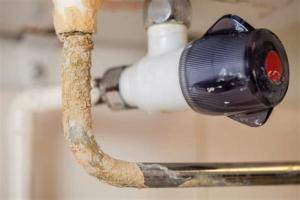Effective Solutions to Fix Hard Water: A Comprehensive Guide

-
Quick Links:
- Introduction
- Understanding Hard Water
- Impact of Hard Water
- Testing for Hard Water
- Methods to Fix Hard Water
- Case Studies
- Expert Insights
- Step-by-Step Guide to Fixing Hard Water
- FAQs
Introduction
Hard water is a common issue in many households, bringing along a host of problems ranging from soap scum to potential plumbing issues. In this comprehensive guide, we will explore the nature of hard water, its effects on your home, and the most effective solutions to mitigate its impacts.
Understanding Hard Water
Hard water is water that contains a high concentration of dissolved minerals, primarily calcium and magnesium. These minerals come from natural sources, such as groundwater, and can vary significantly depending on your geographical location.
What Causes Hard Water?
Hard water is typically caused by the leaching of minerals from soil and rock formations as water travels through them. Other contributors include:
- Geological conditions
- Water table levels
- Human activities, such as agriculture and mining
Impact of Hard Water
The presence of hard water can lead to a variety of issues in your home:
- Scaling: Mineral deposits can build up in pipes and appliances, reducing efficiency.
- Soap Scum: Hard water reacts with soap, creating a residue that clogs drains and leaves surfaces dirty.
- Skin Irritation: Hard water can lead to dry skin and irritation, particularly for sensitive individuals.
- Cost Implications: Increased energy bills due to inefficient appliances and potential plumbing repairs.
Testing for Hard Water
Before implementing solutions, it's crucial to determine the hardness level of your water. Here are some ways to test your water:
- DIY Test Kits: Available at most hardware stores, these kits can give you an immediate reading.
- Laboratory Testing: For more accurate results, send a water sample to a laboratory.
Methods to Fix Hard Water
There are several methods available to treat hard water, including:
1. Water Softeners
Water softeners are the most common solution for hard water. They use a process called ion exchange to replace calcium and magnesium with sodium.
2. Reverse Osmosis Systems
This method uses a semipermeable membrane to remove minerals and impurities from water, providing clean, soft water.
3. Magnetic Water Conditioners
These devices claim to alter the properties of minerals in hard water, preventing them from forming scale.
4. Chemical Softeners
There are several chemical products available that can help soften water temporarily.
Case Studies
Examining real-world applications can provide valuable insights into the effectiveness of various hard water solutions. Consider these examples:
Case Study 1: The Smith Family
The Smith family installed a water softener system that reduced scale buildup in their appliances by over 80%, leading to lower energy bills.
Case Study 2: Local Business
A local restaurant faced significant scaling issues in their dishwashers. After implementing a reverse osmosis system, they reported an increase in operational efficiency.
Expert Insights
We consulted with water quality experts who emphasized the importance of regularly testing water and using the right solution tailored to your specific water quality.
Step-by-Step Guide to Fixing Hard Water
Here’s a detailed guide to help you effectively address hard water issues:
Step 1: Test Your Water
Use a DIY test kit or send a sample to a lab to determine the hardness level.
Step 2: Choose a Solution
Depending on your test results, select the appropriate solution (water softener, reverse osmosis, etc.).
Step 3: Install the System
Follow manufacturer instructions for your chosen solution or hire a professional for installation.
Step 4: Regular Maintenance
Perform routine checks and maintenance on your water treatment system to ensure optimal performance.
FAQs
1. What is hard water?
Hard water is water that contains high levels of calcium and magnesium minerals.
2. How can I tell if I have hard water?
Signs of hard water include soap scum, dry skin, and scale buildup in appliances.
3. Is hard water harmful to health?
While hard water is not harmful to health, it can affect skin and hair and lead to plumbing issues.
4. Can I soften hard water without a water softener?
Yes, you can use chemical softeners or boiling water to reduce hardness temporarily.
5. How often should I test my water?
It’s advisable to test your water at least once a year or after significant changes in your water supply.
6. Are there any natural methods to soften water?
Natural methods include adding vinegar or baking soda to laundry for softer results.
7. What is the cost of installing a water softener?
The cost can vary widely, typically ranging from $400 to $2,500, depending on the system size and installation.
8. Can hard water affect my appliances?
Yes, hard water can lead to mineral buildup, reducing the efficiency and lifespan of appliances.
9. How do I maintain my water softener?
Regularly check salt levels, clean the system, and schedule professional maintenance as needed.
10. Is hard water better than soft water?
Soft water is often preferred for its benefits in cleaning and reducing mineral buildup, but hard water contains beneficial minerals.
Random Reads
- How to recover bitlocker
- How to recover a dead hard disk
- How to measure resistance with a multimeter
- How to put a bed frame together
- Recover word documents
- Recover secure hacked hotmail account
- How to remove rar winrar password using cmd
- How to remove printer ink on paper
- How to remember forgotten password
- How to repair an electric cord